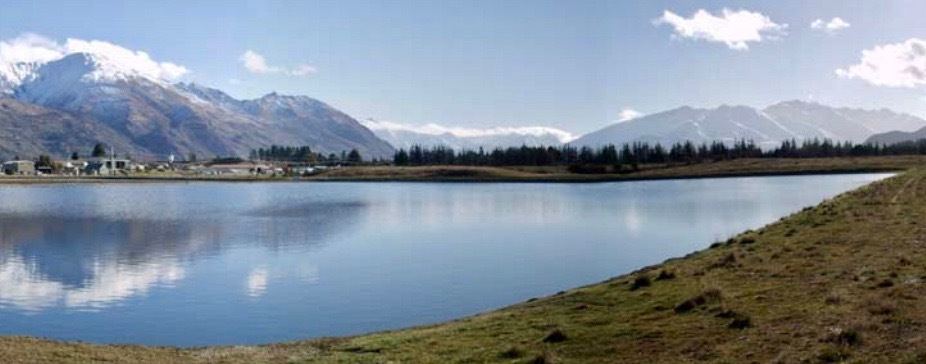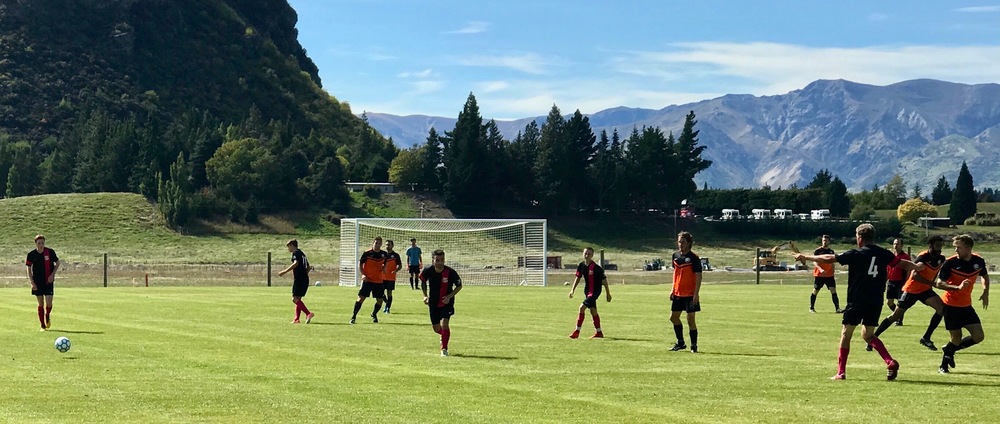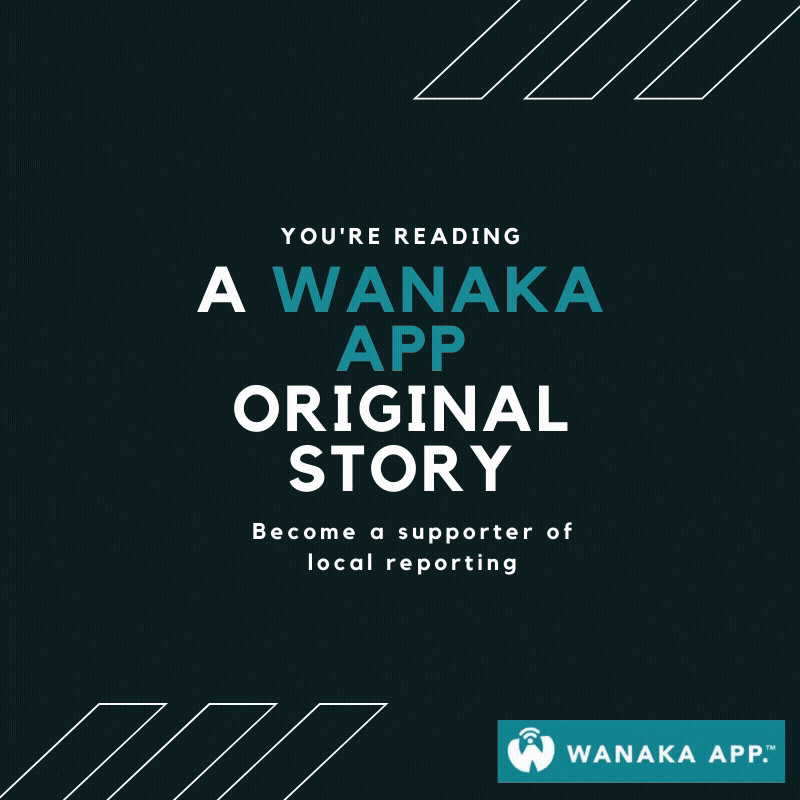Sewage ponds to sports hub?
Diana Cocks
16 August 2020, 6:12 PM
 The former sewage treatment ponds on Ballantyne Road were used for storage after they were decommissioned in 2009. PHOTO: Wanaka App
The former sewage treatment ponds on Ballantyne Road were used for storage after they were decommissioned in 2009. PHOTO: Wanaka AppThe proposal to turn Wanaka’s former sewage ponds into a sports hub is gathering momentum but appears to have almost as many opponents as supporters.
A district plan hearings panel, comprising independent commissioners plus two Wanaka-based Queenstown Lakes District (QLDC) councillors, gathered in Wanaka last week to hear public submissions to stage three of the proposed district plan (PDP), including presentations to create a proposed sports hub.
Based on a 2018 report to council, the QLDC has proposed to rezone the 20.4ha oxidation ponds site, at 101 Ballantyne Road, to an active sport and recreation zone (ASRZ).
Submissions to stage three of the QLDC’s proposed district plan (PDP) indicated that slightly more than half the submitters favoured repurposing the pond site as sports fields.
Those in opposition to the ASRZ submitted a range of objections, such as concerns about creating sports fields on contaminated land and that the zoning of the large site should not be limited to sports and recreation, rather it should be permissible to share the land with other non-sporting community options or general industry.

In 2007 the ponds stretched across almost 7ha of land, which will need to be decontaminated before it can be repurposed. PHOTO: Supplied
Why is this zoning issue important?
The District Plan guides how land can be used - what can be developed and where. It affects everyone who lives in the district.
The former sewage ponds were decommissioned in 2009 and although the land was zoned for yard-based light industry and mixed business use, it has not been developed. The council has since identified a demand for more general industrial land at Ballantyne Road and proposed rezoning it for that purpose.
But in 2018 a report to council identified a shortage of winter sports fields and considered the qualities of the ponds site as a large, flat, undeveloped space in public ownership could meet future demand.
The council has an added incentive to rezone the pond site to ASRZ. The site’s previous owner was compelled to sell the land to the council under the Public Works Act but if the land is no longer used for the purpose for which it was taken (the sewage ponds) it could be offered back to the original owner to buy and the council would lose ownership.
However, if the council retains the site for the benefit of the community then the site “can be set apart by the Minister of Lands for that new work” and council would retain ownership, a council spokesperson said.

The Aspiring Athletics Club says demand for sports grounds has already outstripped supply. PHOTO: Supplied
Some pros and cons
Sporting bodies such as Sports Central and Aspiring Athletics Club (AAC) have submitted in support of the ASRZ. AAC coach Barbara Beable presented the club’s case to the PDP hearing’s panel, saying demand for sports grounds has already outstripped supply.
The small, grass athletics track at the Recreation Centre hub, on land shared with the football club, is inadequate for competition and cannot withstand constant use from a variety of sports.
Barbara added that while there was a long jump pit at present, the proposed extension of the Rec Centre’s artificial turf would cover it, and field events (such as discus, shot put and high jump) had been overlooked in all planning.
Instead, she recommended a nine-lane all weather track encircling a multi-use sports field together with a grandstand at a new sports hub on the ponds site.
The site’s proximity to growth areas, transport, and existing and planned facilities at Three Parks, is a “common-sense solution and is our last chance to future-proof such a green space for Wanaka’s current and future generations”, she said.
Sports Central’s Tiny Carruthers said: “Looking ahead 50 years, we don’t know how we will be doing sports and recreation but we will need the land to do it on and once it’s gone, it’s gone.”
The hearings panel also considered submissions against the ASRZ which said it could be reduced in size to allow the sports fields to be created on the uncontaminated land (about 13ha), permitting general industrial interests to build on the contaminated land.
Public Health South submitted on behalf of the Southern District Health Board that a public health risk assessment of the decommissioned oxidation ponds should be completed before any works are undertaken on the site.
As the ponds, decommissioned in 2009, were previously used for the treatment of sewage this site is on the Hazardous Activity and Industries List.
The council acknowledges that remediation of the site would be required but was unable to advise the Wanaka App what measures would be required or how much it would cost to meet the national environmental standards for soil.
“When compared to the likely cost if council were to try and obtain an equally accessible flat area of land within the urban area at the scale available within this site, any remediation cost would likely be much less,” a council report said.
What happens now
The independent hearings panel completed its hearings in Wanaka last week. It will consider all the submissions, including zoning part of the land for industrial purposes, making a specific rule to enable community activities, and the council’s proposed ASRZ option.
After deliberations, it is hoped the panel will make its recommendations before December 2020, which will be publicly notified early in 2021, a council spokesperson said.
“There could be appeals to these decisions, but if not the zoning should be confirmed by the second quarter of 2021.”





